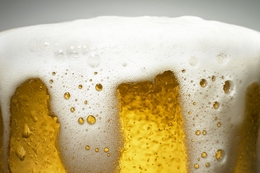 Business in China is growing at a “double-digit” rate, “so that’s very good,” Chief Executive Officer Carlos Brito said yesterday at the Boao forum in Hainan, China. “We also have plans for inorganic growth because we have parts of the country where we have no breweries but where we sell our brands. It makes sense to have the production place closer to the consumption place.”
Business in China is growing at a “double-digit” rate, “so that’s very good,” Chief Executive Officer Carlos Brito said yesterday at the Boao forum in Hainan, China. “We also have plans for inorganic growth because we have parts of the country where we have no breweries but where we sell our brands. It makes sense to have the production place closer to the consumption place.”The Leuven, Belgium-based maker of Budweiser beer will boost capital spending globally to $3.7 billion this year as it increases investment in capacity expansion into Brazil and China. Brito, who spearheaded a bid for Mexico’s Grupo Modelo SAB, said the growth potential of the beer market in China was “humongous,” with per-capita consumption levels of the beverage much lower than elsewhere in the world.
The beermaker plans to build breweries in western China over the next three years and will focus on expanding beyond the coastal provinces, the CEO said.
AB InBev made an unsuccessful bid to buy Guangdong, China- based Kingway Brewery Holdings Ltd. (124)’s beermaking assets last year. China Resources Snow Breweries Ltd., which SABMiller co- owns with government-backed China Resources Enterprise Ltd. (291), agreed to pay HK$6.6 billion ($850 million) for the assets on Feb. 5.
Among Chinese brewers, Tsingtao Brewery Co. gained 3 percent to HK$48.75 in Hong Kong trading; Beijing Yanjing Brewery Co. rose 1.9 percent in Shenzhen and China Resources rose 1.9 percent in Hong Kong. The Hang Seng index was little changed.
AB InBev gained as much as 1.8 percent as of 11.58 a.m. in Brussels.
Brito said the beermaker has two weeks to submit the final agreement to the U.S. Justice Department on the purchase of Modelo, after receiving agreement in principle for it. The final document would be very similar to the revised offer submitted by the company on Feb. 14 this year, he said.
The brewer agreed in June last year to buy the remaining 50 percent of Modelo it doesn’t own for $20.1 billion, giving it full ownership of the maker of Corona. After being sued by the Department of Justice, it amended the terms of its acquisition on Feb. 14 to try to appease competition authorities in the U.S.





